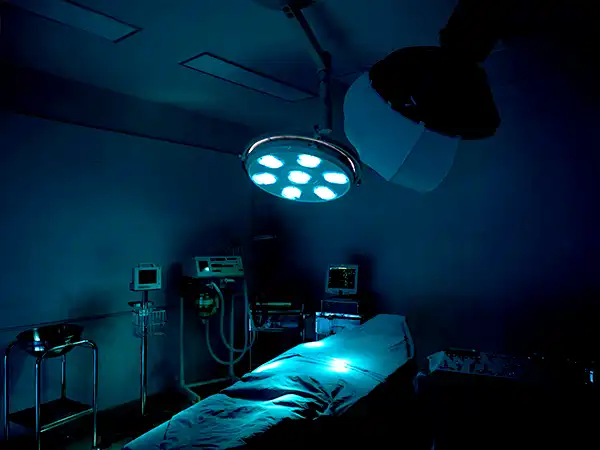
In the last decade, the implementation of digital transformation has been crucial to the effectiveness of all industries, and the health sphere is no different.
These days, the biggest selling point of the health sector is the ability to deliver excellent customer care and services to its patients from any in the world.
When we talk about the application of digital technology in the healthcare industry, what we mean is the implementation of digital technologies to enhance operational efficiency in clinics and hospitals thereby still delivering adequate patient care.
Due to the application of digital technologies, there has been a breakthrough of opportunities that have helped in making correct diagnostics
Although Digitizing the Health industry is crucial to its effective operation, what are the benefits it provides to health workers, patients, and health institutions in general?
By implementing modern technologies into hospitals daily operations, health workers and doctors can effectively diagnose ailments by using modern medical appliances to track patients' health status on the go. The main purpose of digital transformation in the health sphere is to enhance operations as well as provision of adequate care and services to patients while minimizing expenses. Below are the means by which modern healthcare solutions are utilized in the medical sphere.
he rise of Virtual doctor visitation is considered among the most popular evolutions in the health sphere. This particular digital solution allows patients to meet medical practitioners whenever it's suitable. Thereby cutting the time and money spent if one was to meet the doctor in person. By using software like Zoom, Skype, Meet, etc. Patients can schedule appointments with health practitioners on their mobile devices or laptops. They can also receive test results and drug prescriptions via email.
By using ambulances, health institutions can collate and send patient data easily by using modern health solutions like sensors, wearables, etc. this allows the transfer of patient data to health specialists ahead of the patient’s arrival at the hospital. By doing this, the doctors are equipped with the necessary data and information needed to fully help the patient properly. In extreme cases, By using connected ambulances, Medical experts can instruct paramedics on certain procedures if someone’s life is in danger..
In the last few years, because of the development of science and technology, there has been a rise in the number of mobile device users. This development has forced health institutions to embrace digital technologies. Now healthcare professionals can offer their service to multiple hospitals and clinics instead of being worn out at one.
Considered to be among the most vital features of modern medical solutions. The application of automation to the healthcare sphere is highly valuable to drug manufacturers concerning production safety. This means that, with digital health solutions, drug manufacturers can correctly analyze and examine materials efficiently. And not just that, automation in microbiology can be useful to microbiologists in the process of carrying out experiments like analyzing specimens. In general, automation provides efficiency which will result in better laboratory study. Furthermore, let's not forget how beneficial automation is to the health sector. It enables productivity generally while also decreasing human mistakes and paperwork. Automation also allows doctors the opportunity to engage with patients and administer excellent medical care. Additionally, by using automation, Doctors can group patients according to their medical needs which will minimize time and deliver services on time.
Patient database: A revolutionary movement in the digitalization of the health sector. This particular healthcare solution enables institutions to develop platforms that provide easy accessibility to patients;
- Health history and records
- Verify prescribed drugs
- Request doctor consultation
- Make appointments with health practitioners
- Laboratory reports
Furthermore, this option provides smooth and adequate availability to patient health records while also cutting the caseload of health workers.
SMART HEALTH DEVICES: Because of the constant evolution of science and technology, humans are now more self-aware of their health than they’ve ever been. Instead of visiting hospitals for a check-up when ill, they prefer to find alternative ways of monitoring their health status. This is why there is a rise in the number of people that wear smartwatches and all other digital health devices that help to monitor health status. These devices collect meaningful health metrics and deliver correct data instantly.
Examples of digital
medical devices include
- Smartwatches that record physical exercises, number of burned calories, etc
- Sweat meter that monitors blood sugar in the system
- Heart rate monitor; which helps to track heartbeat and high blood pressure.
Advantages to the Health sector.
Here are some ways digital transformation has been beneficial to the healthcare sphere;
- OPTIMIZED OPERATIONS: By Applying digital transformation in the health industry, there will be little to no paperwork. Which means all information will be safe and secure. There will also be a reduction in time required to examine a patient because of the availability of the patient's health records.
- BETTER INTERACTIVE SESSIONS BETWEEN DOCTORS AND THEIR PATIENTS: Modern healthcare technology creates a comfortable environment for health professionals and patients to communicate through video chats and calls.
- COST REDUCTION; The use of automated services helps to drive the expense of rendering health services to patients down, compared to analog healthcare services.
- DEVELOPMENT of a secured medical portal where patients' medical records can easily be accessed by medical experts
- INTERACTION AMONG MEDICAL PRACTITIONERS; By exchanging data internally, medical specialists can thoroughly analyze patients' medical reports and diagnoses to improve results and research.
Challenges faced by Digital Transformation in the health industry.
Though we have seen a swift rise in the application of digital solutions to the health sector, there are still some challenges obstructing the total overhaul of traditional operations. Health institutions are still not convinced about going fully digital. Here are some of the reasons.
Cybersecurity issue: To fully safeguard patients' data from hackers, health institutions need to employ skilled cyber specialists who will prevent the leakage of patients' health data. Unfortunately, there aren’t enough experts in the healthcare profession that possess these skills.If you are looking to transform your business digital, get in touch with our team at ITDT technology for a free consultation.



























